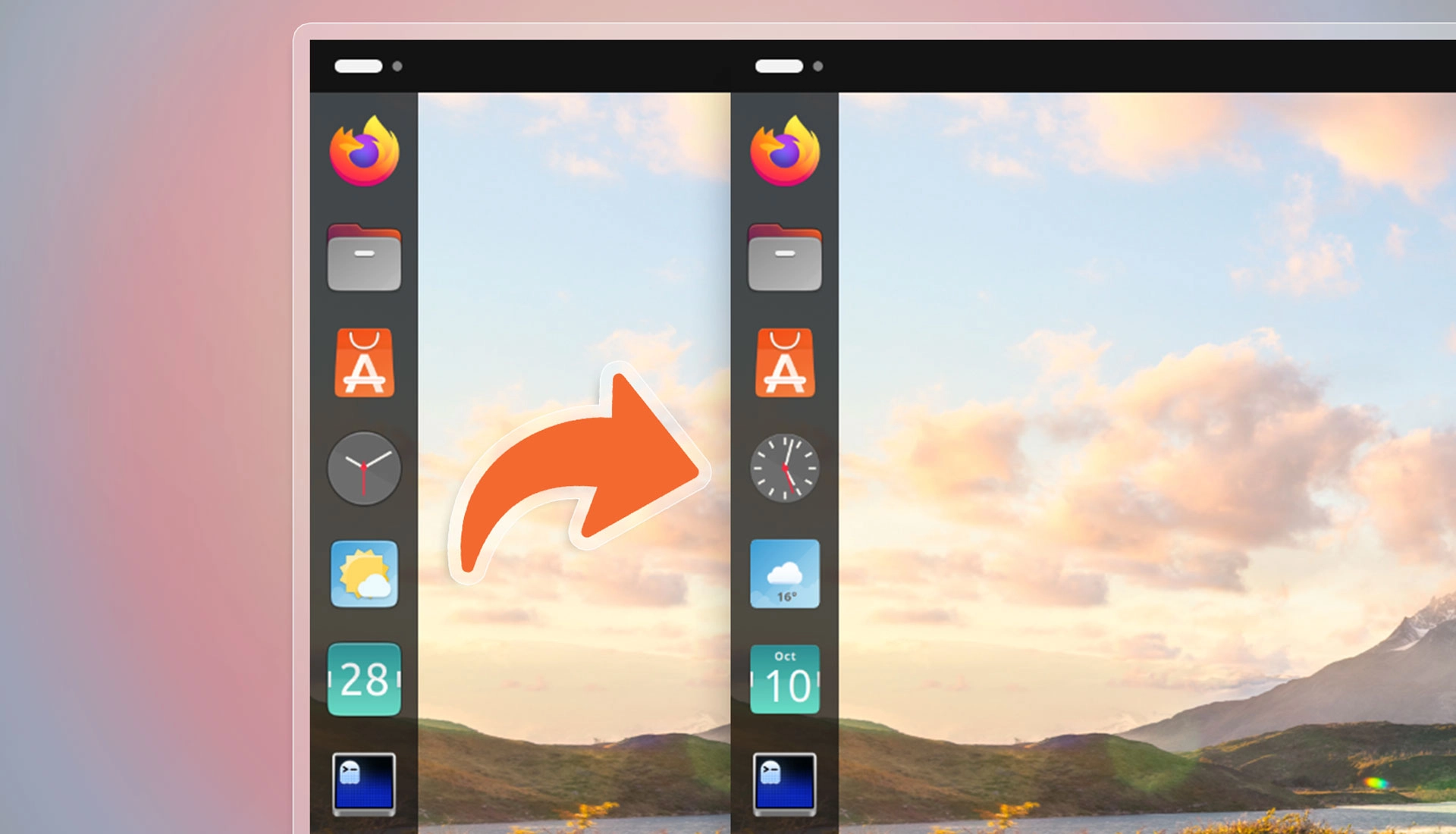You can now enhance the visual appeal of your Ubuntu dock with a new GNOME Shell extension that transforms static clock, calendar, and weather app icons into dynamic ones that display real-time information.
With this extension, the pinned icons on your dock, whether it’s in the Ubuntu Dock or alternatives like Dash to Panel, can breathe new life into your workspace. The clock icon ticks with the current time, the calendar shows the current day and date, and the weather icon reflects ongoing conditions and temperatures.
This innovation is a fork of a previous extension called Dynamic Calendar, Clocks and Weather Icons, which has not been updated to support newer GNOME versions. The current version, dubbed Dynamic Calendar, Clocks and Weather Icons (Reborn), allows users to switch between different icon themes, including Ubuntu’s Yaru, GNOME’s Adwaita, and the widely used Papirus icon set.
Users can also customize what is displayed. For example, you can disable the seconds hand on the clock icon or limit the calendar display to only show the month.
While this feature might not be revolutionary, it adds a layer of dynamism to your Ubuntu dock, making your environment feel more responsive and informative. It’s an easy-to-use alternative to panel extensions or complex scripts.
How to Install the Dynamic Icons Extension
To install this extension, visit the GNOME Extensions website, where it’s available for GNOME versions 46 through 49, making it compatible with Ubuntu 24.04 LTS to 25.10. Other GNOME-based distributions, such as Fedora, can also use it if they are running the required versions.
Note that the extension requires the relevant applications to be installed. While GNOME Clocks comes preinstalled with Ubuntu, you’ll need to install GNOME Calendar and GNOME Weather separately. Use the following command in your terminal to install all three:
sudo apt install gnome-calendar gnome-weather gnome-clocksDon’t forget to pin them to your Ubuntu Dock to utilize this new functionality! For added convenience, consider using the Extensions Manager desktop app to manage and configure your GNOME Shell extensions.
